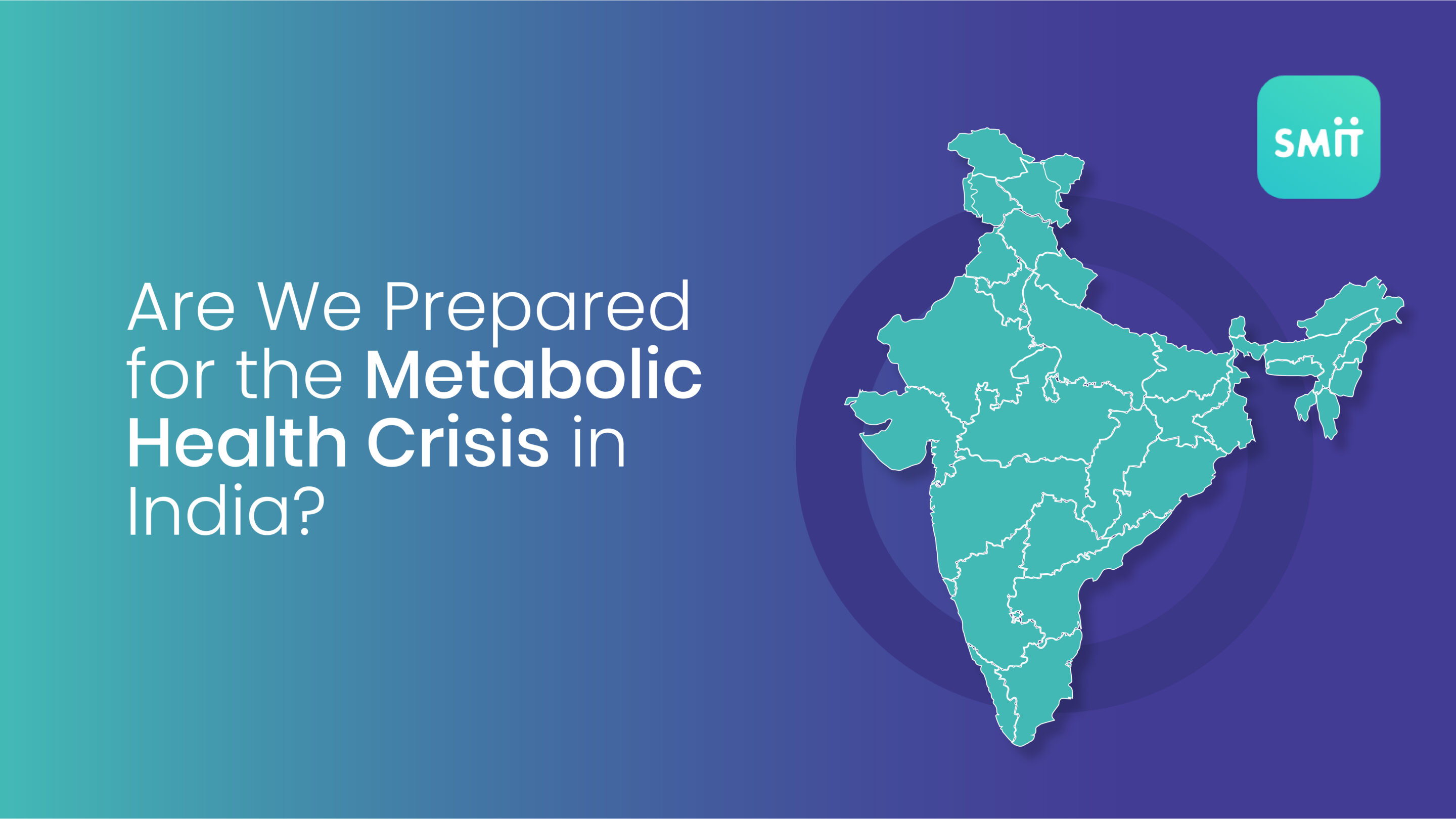Understanding the Alarming Rise and Urgent Implications
India, the world’s most populous country, is currently facing a severe health crisis marked by a significant rise in metabolic health conditions. A recent study conducted by the Indian Council of Medical Research (ICMR) reveals startling statistics, emphasising the urgent need for measures to tackle this escalating issue. In this blog post, we will delve into the metabolic health status of India, analyse the reasons behind the steep rise in these conditions, and highlight the implications for the nation.
The Metabolic Health Status of India:
The ICMR-INDIAB study, the largest nationally representative survey conducted in India, sheds light on the prevalence of metabolic non-communicable diseases (NCDs) across the country. The study encompassed 31 states, union territories, and the National Capital Territory of India, involving over 113,000 participants. The findings are a cause for concern, with the study revealing high prevalence rates of diabetes, prediabetes, hypertension, obesity (generalised and abdominal), and dyslipidemia.
Alarming Rise in Metabolic Health Conditions:
As per Dr. Arati Joshi, Senior Diabetologist and Physician, “The significant surge is deeply intertwined with the changing lifestyle patterns. This worrisome situation calls for immediate national-level interventions to prevent the numbers from escalating at this pace”.
The research has also shown that changing lifestyles play a pivotal role, as rapid urbanisation and desk-bound jobs have led to a shift in dietary patterns. Traditional, nutrient-rich diets have been gradually replaced by diets high in processed foods, refined carbohydrates, unhealthy fats, and added sugars. The availability and convenience of these calorie-dense foods have fueled unhealthy eating habits, leading to weight gain and metabolic disorders.
Furthermore, the sedentary nature of modern life has significantly reduced physical activity levels. Technological advancements have made daily tasks more convenient, reducing the need for physical exertion. The resulting sedentary behaviour has contributed to obesity, insulin resistance, and other metabolic health issues.
Genetic predisposition and the interplay of genetic and environmental factors are also believed to play a role in the rise of metabolic health conditions. Certain ethnic groups in India may be more susceptible to developing these conditions, indicating a genetic component. However, the increasing prevalence across the population suggests that environmental factors, such as lifestyle and dietary changes, are major contributors.
Implications and Solutions:
The rise in metabolic health conditions in India has significant implications for both individuals and the nation as a whole. These conditions decrease the quality of life and impose a substantial burden on healthcare systems and the economy.
To combat this growing health crisis, a comprehensive approach is required. Raising awareness about the importance of a balanced diet and regular physical activity is crucial. Public health campaigns should focus on promoting healthier food choices and encouraging active lifestyles. Additionally, the healthcare system needs to prioritise early detection, diagnosis, and management of metabolic conditions through regular screenings and accessible healthcare facilities.
Furthermore, urban planning should emphasise creating environments that facilitate physical activity. The development of parks, walking and cycling tracks, and other public spaces can promote active living and combat sedentary behaviour.
Conclusion:
India’s escalating metabolic health crisis demands immediate attention and concerted efforts from individuals, communities, and policymakers. The ICMR-INDIAB study serves as a wake-up call, highlighting the urgency to address the underlying causes and implement effective strategies. By promoting healthier lifestyles, increasing awareness, and improving healthcare infrastructure, we can strive towards a healthier future for India. It is only through collaborative efforts that we can curb the rise of metabolic health conditions and improve the well-being of the nation.
References:
Anjana, R.M. et al. (2023) ‘Metabolic non-communicable disease health report of India: The ICMR-INDIAB national cross-sectional study (ICMR-INDIAB-17)’, The Lancet Diabetes & Endocrinology, 11(7), pp. 474–489. doi:10.1016/s2213-8587(23)00119-5.
Narayan, P. (2023) ‘100 million plus in India now diabetic, up 44% in 4 years: ICMR study’, The Times of India, 9 June. Available at: https://timesofindia.indiatimes.com/india/100-million-plus-in-india-now-diabetic-up-44-in-4-years-icmr-study/articleshow/100857896.cms (Accessed: 06 July 2023).



0 Comments